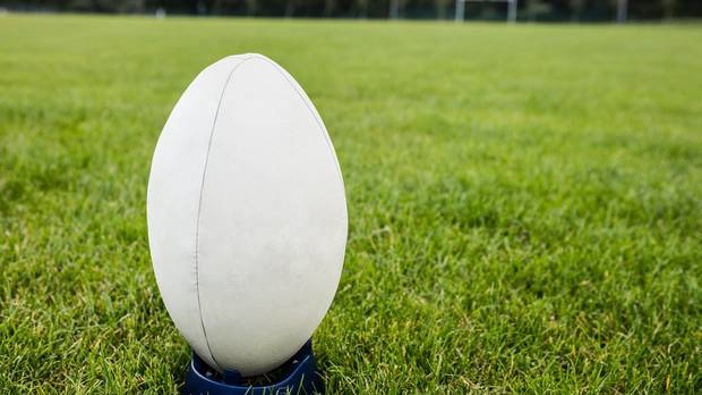A group of former Olympians and elite New Zealand athletes are challenging Government guidelines on transgender people playing in sport and calling for wider consultation.
The guidelines focus on the principle of inclusion, and cite evidence around the barriers New Zealand's roughly 50,000 trans and non-binary people face in playing sport and the associated severe mental health impacts.
But this has irked a group of some of New Zealand's most successful sportspeople, 43 of whom penned an open letter to Prime Minister Jacinda Ardern and Minister for Sport Grant Robertson citing concerns around "fairness and safety in all sport" arguing the guidelines ignored the rights of female athletes.
Among those concerned were former Olympians Barbara Kendall, Lorraine Moller and Dean Kent, former Olympic Chef de Mission and Emeritus Professor David Gerrard, and New York marathon winner Alison Roe, and All Black Jeff Wilson.
While the guidelines were developed in consultation with the trans community and a wide range of experts and affected groups, including Save Women's Sport Australasia which supports the open letter, the group want a wider consultation process involving all sports bodies.
"The existing process has not engaged meaningfully with key sporting organisations, clubs and their stakeholders," Gerrard said.
"This policy has potential to significantly affect competition and participation in women's sports, it is vital that discussion isn't held behind closed doors by a select few."
Sport NZ CEO Raelene Castle said the guidelines were in draft form, and would be more broadly consulted on.
"We consulted with a representative group of experts, including academics, sports, the rainbow community and advocates for women's sport, to help us develop the draft guiding principles and are now sharing the draft with this group before a much broader consultation process is undertaken.
"We want to sport to be safe and inclusive for all New Zealanders, but the issues around transgender participation vary significantly from sport to sport.
"Once the guiding principles are final they will be shared with national bodies and Sport NZ will work with them to explore the development of policies for individual codes, but whether they do make a policy change and what this looks like will be a decision for each sport."
Save Women's Sport Australasia spokesperson Ro Edge said the desire to be inclusive would have unintended negative consequences for female athletes losing "fair and meaningful competition".
She accepted each could develop its own policies it probably would not impact on sports like lawn bowls, but in contact sports like rugby it could put "female athletes at a huge risk".
"People play contact sport understanding there is a risk to playing, but they think it's an acceptable risk that is being managed by the sport.
"One of the things females cannot consent to is the possibility of playing or fight against a biological male."
The draft report cites research report Counting Ourselves from the University of Waikato, which found 61 per cent of participants were worried about the way they would be treated in competitive sport.
About 50 per cent of this group actively avoid sport because of perceived discrimination and rates of participation were about 50 per cent lower than the general population.
The research also found much higher rates of mental illness and suicide among transgender and non-binary people.
The draft document consequently said "exclusion from sport can have alienating impacts on individuals and groups".
"This is particularly harmful to members of the transgender community who already suffer from high levels of mental distress and marginalisation in New Zealand."
It concluded "inclusion of transgender players in community sport" to be "paramount" and that "transgender players have the right to play in the gender that they identify with".
"To ensure that a robust and appropriate transgender inclusion policy is adopted, each sporting code should ensure that they consult with relevant stakeholders in a meaningful way," the document stated.
Dr Jaimie Veale, lead researcher of Counting Ourselves, said the guiding principles, on which she unofficially advised, were "encouraging".
While she said she understood some people would be anxious about any changes, there was really no evidence or data to base those opinions on.
"Trans women have been able to compete in the Olympics for years, and only just this year Laurel might be the first to compete," said Veale, referring to New Zealand weightlifter Laurel Hubbard, who is expected to make history as the first transgender athlete to compete at this year's Olympics in Tokyo.
She has been eligible to compete in the Olympics since 2015, when the International Olympic Committee issued guidelines allowing any transgender athlete to compete as a woman provided their testosterone levels are below 10 nanomoles per litre for at least 12 months before their first competition.
Veale said arguments against trans women competing because they might be stronger or more skilled in certain sports was a "slippery slope".
"It could be like arguing over specific height or weight advantages, and with testosterone does that mean females who naturally have high testosterone are then excluded as well?
"I think people think these things will turn out really horrible, but most of the arguments are not based on any good evidence or data and come more from a place of anxiety about change.
"The starting point should be about being able to access and compete in sport. You only have to look at the serious health and mental health inequities that exist to know sport and exercise, and feeling connected and part of something, is important."
Veale said while in some sports there were clear biological differences between males and females, in many it was more likely about social and resourcing issues.
Work on the guidelines began last year between New Zealand Rugby and Sport New Zealand.
It followed the release of World Rugby's transgender guidelines that banned transgender women from playing elite women's rugby.
NZR announced it would review its own transgender guidelines, which it is still working on.
Take your Radio, Podcasts and Music with you










